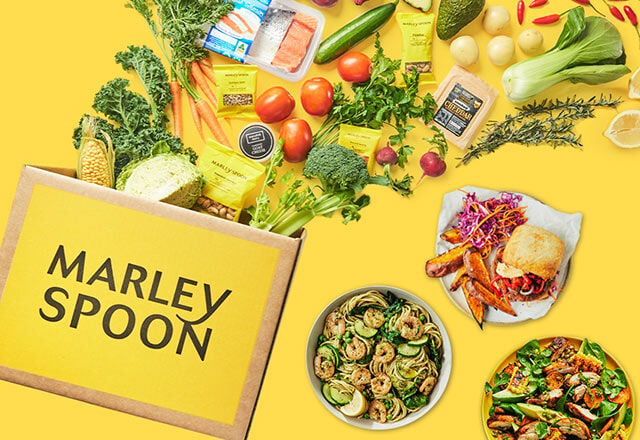Developing and managing complex recipes can be a daunting task. Not only do you need to keep track of a wide variety of ingredients, but you also need to ensure that your recipes are consistent and accurate to manage costs and protect product quality and safety. The landscape in which the food industry operates is a complex, ever-changing one.
Developing rapid data-driven responses to consumer demand is key to remaining competitive. These responses form part of a wider digital transformation of the food industry - with tech playing an ever-growing role in managing all but the smallest food businesses. From supply chain management to digital recipe management, food businesses are turning to technology to manage innovation, standardise processes and provide the insights they need to strategise for the future.
What is a recipe management system?
A recipe management system is a form of software with functionality spanning the full process of developing and implementing recipes. Apart from storing recipes safely, it will allow you to modify recipes and determine some of the practical implications of doing so. It will help with production record-keeping too, especially when it is integrated with a manufacturing execution system. This includes every detail: not only the ingredients to be used, but also the processes to be followed - for example, how machines should be set up and operated, cooking times and temperatures, and so on.
Why recipe management systems are increasingly important in the food industry
While being crucial for food production, having a recipe is only the first step to guaranteeing consistency. A recipe management system ensures uniformity and scalability - implementing precise measurements of ingredients across a whole production line so products deliver on expectations time after time.
At the same time, recipe management systems help to simplify the product development process. You can test more options, evaluate results, and develop those exciting new flavours that match consumers’ current tastes. Recipe management systems offer precision so that the results of these tests and experiments are as reliable as possible.
Recipe management systems also make it easier to determine costs as you grow and scale operations. This is particularly vital for bigger businesses that have far too many variables for manual costing processes to be accurate. Digital technology can also account for dynamic market changes such as fluctuating ingredient prices.
Finally, there are many regulations to consider when it comes to developing and managing recipes. From high fat, salt, and sugar (HFSS) regulations to Natasha's Law and calorie labelling requirements to name a few. However, this process can be complex and time-consuming, especially if you're relying on traditional paper-based systems. Fortunately, in today's digital age, many tools and technologies can help you streamline your recipe management process and improve the overall efficiency of your operation.
From paper to digital: the evolution of recipe control
It seems that even from a domestic perspective, the use of paper recipes has always been considered cumbersome. One of the first incarnations of what we now know as digital recipe management systems began in 1969 with the Honeywell Kitchen Computer. However, it was more of a novelty and publicity stunt than anything else. The actual machine was produced, but was likely never sold since it weighed 45kg, came with a mammoth price tag, and could only deliver limited sets of information in binary code.
Later on, spreadsheets were used as the best possible digital tool of the times and there will still be food industry professionals who remember this period. But in 1988, the Culinary Institute of America gave us a glimpse into the future, developing the first dedicated computer that could calculate nutritional values. However, it never saw widespread use and was intended more as an educational tool than a system that could be widely utilised.
Between 1999 and 2000, progress advanced rapidly, with technological developments allowing for more advanced recipe management systems. Some were intended only for home use, suggesting recipes based on available ingredients for example, but some of them had enterprise-level functionality. Now in the present day, anything that can be standardised and repeated offers opportunities for automation and analysis, opening new opportunities for those who are willing to embrace digital recipe control opportunities.
Key features of modern recipe management systems
Recipe management systems do far more than store recipes and food preparation formulas. They address many of the concerns modern food businesses face such as the need for ingredient traceability, quality assurance measures and the management of inventory. In addition, the ability to produce accurate financial analytics helps with recipe evaluation, allowing business leaders to identify areas that are ripe for improvement or change.
To indicate this broader functionality, the term “food enterprise resource planning” (food ERP) has been applied, but even this fails to capture the management aspects addressed by a complete recipe management system.
5 reasons why you should embrace a food recipe management system
1. Drive team collaboration with digital recipe management
One of the key benefits of digital recipe management is the ability to easily share and collaborate on recipe development projects with your team. With traditional paper-based systems, it can be challenging for all stakeholders to have access to the latest version of a recipe so they are all using up-to-date ingredient information. By using a digital platform, you can share recipes in real time to streamline communication across teams and ensure that everyone is working off the same set of instructions.
Digital recipe management solutions also enable businesses to take a more structured approach through set approval processes, version control and central data storage. This makes it simpler for teams to collaborate and scale approved recipes at will.
2. Ensure regulatory compliance with digital ingredient profiles
By embracing digital technology, you can improve the visibility, accuracy, and integrity of your data. This will make recipe development and management much easier and more efficient.
Since the introduction of Natasha’s Law, which requires food businesses to provide allergen information on their menus, it's more important than ever for food businesses to provide accurate and up-to-date allergen information to their customers. By using a digital platform, you can easily link allergen information to your ingredients profile centrally. You can then directly share this version-controlled information with your customers via on-pack labels or menus so they can make informed decisions about what they're eating.
Additionally, when it comes to regulations, digital ingredient profiles can also be used to manage compliance with HFSS regulations, which require you to monitor the levels of fat, salt, and sugar in your food products. By using a digital platform, you can track the nutritional profile of these ingredients to check you're meeting the required standards.
With the right tools and technologies, you can navigate a multitude of food industry regulations with ease and focus on what you do best: creating delicious food products for your customers.
3. Minimise supply chain risk with centralised recipe data
Unfortunately, food fraud and contamination incidents can occur at any time, and it's essential to have a plan in place to react quickly and effectively. Digital recipe management can be an invaluable tool in this regard, helping you maintain the highest levels of food safety and protect your business from potential incidents.
The ability to centrally generate, store and manage recipe data is beneficial when it comes to identifying and addressing potential food safety issues. By using a digital platform, you can track ingredient and supplier risk - which can help you identify potential problems before they become a significant issue.
In the event of a food safety issue, it's essential to get the word out as quickly as possible to prevent any potential harm to your customers. By using a digital recipe management solution, information relating to food safety or quality risks can quickly be shared with relevant team members, allowing them to instantly pause affected production lines. It can also be shared with suppliers when investigating the magnitude of the risk; and finally, with customers in the event of a food recall.
4. Verify recipes and automate labelling with smart integrations
Another advantage of digital recipe management is the ability to use reference materials like McCance and Widdowson's "The Composition of Foods" to verify the nutritional content of your recipes. This comprehensive reference guide provides detailed information about the nutritional content of a wide variety of foods, making it an invaluable resource for food manufacturers looking to create accurate nutritional profiles.
This information can be auto-generated into on-pack labelling, which is useful when it comes to HFSS classification and allergen labelling and allows businesses to meet calorie labelling requirements. In addition, marketing products to health-conscious consumers implies a need for accurate labelling to validate nutritional claims.
5. Track ingredient costs in real time and reduce manual workload
Naturally, through increased automation and streamlined communication, the manual workload involved in recipe management, and its attendant costs, will be significantly reduced. Equally, the ability to anticipate and react to supply chain risks through greater visibility over ingredient and supplier data, reduces the likelihood of costly food recalls or supply chain disruption.
Additionally, it can be challenging to accurately track the costs of ingredients, labour, and other expenses with traditional paper-based systems. By using a digital platform, all costs can be integrated into recipe formulation processes. The ability to track these costs in real time allows you to get a more accurate picture of the profitability of your recipes. This can be particularly useful when it comes to improving cost feasibility, as it can help you identify ways to reduce input costs and improve your bottom line.
Embracing the future of food with recipe management systems
In a fast-paced society, businesses that can match consumer demand for rapid market-driven innovation will be well-positioned to compete within their fields. Food and beverage producers are no exception. However, the food industry faces unique regulatory challenges, consumer demands, and profitability concerns. Recipe management systems help food industry professionals to overcome these challenges more quickly and with greater accuracy.
Foods Connected offers tools for new food product development as part of its award-winning suite of software solutions. Our tools make it easier than ever for teams to manage the end-to-end NPD process - this includes collaborating on recipe development and management in real time. To find out more, request a demo of Foods Connected’s software solutions today.
Natalie Thorpe
A graduate of Letterkenny Institute of Technology, Natalie studied Visual Communication and Graphic Design. When she's not creating up new designs for company materials and branding, writing, compiling marketing plans or implementing new UX strategies, you'll find her roaming a deserted beach in search of her disappearing dog, or soaking up different cultures on her globetrotting adventures!
Stay up to date
Stay up to date
Browse Posts
- February 2026
- January 2026
- December 2025
- November 2025
- October 2025
- September 2025
- August 2025
- July 2025
- June 2025
- May 2025
- April 2025
- March 2025
- February 2025
- January 2025
- December 2024
- November 2024
- October 2024
- September 2024
- August 2024
- July 2024
- June 2024
- May 2024
- April 2024
- March 2024
- February 2024
- January 2024
- December 2023
- November 2023
- October 2023
- September 2023
- August 2023
- July 2023
- June 2023
- May 2023
- April 2023
- March 2023
- December 2022
- November 2022
- October 2022
- September 2022
- August 2022
- July 2022
- June 2022
- May 2022
- April 2022
- March 2022
- February 2022
- January 2022
- December 2021
.png)
/Blog%20Headers/shutterstock_1927957907%20(1).jpg)
/Blog%20Headers/shutterstock_1845178195%20(2).jpg)
/Blog%20Headers/shutterstock_2133827717%20(1).jpg)
/Blog%20Headers/shutterstock_2473376713.jpg)
/Blog%20Headers/shutterstock_2474442759.jpg)






/Blog%20Headers/Blog%20header_Supply%20Chain%20Resilience%20Series_Navigating%20trade%20tensions.jpg)
/Blog%20Headers/Whitbread%20CS%20Blog%20Header.jpg)
.png)
/Blog%20Headers/shutterstock_1794185881.jpg)
/Blog%20Headers/shutterstock_2480556949.jpg)

-1.png)

.png)